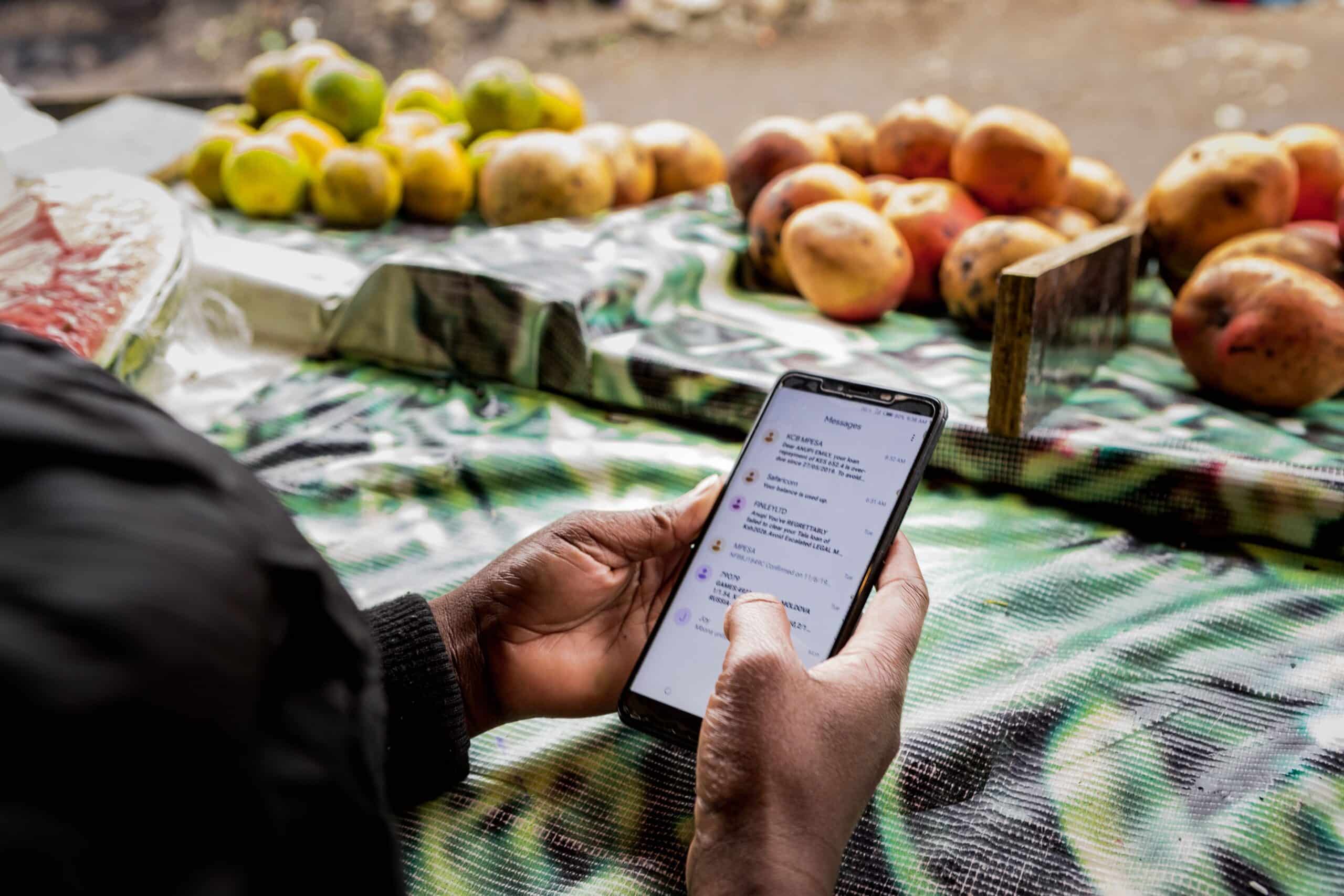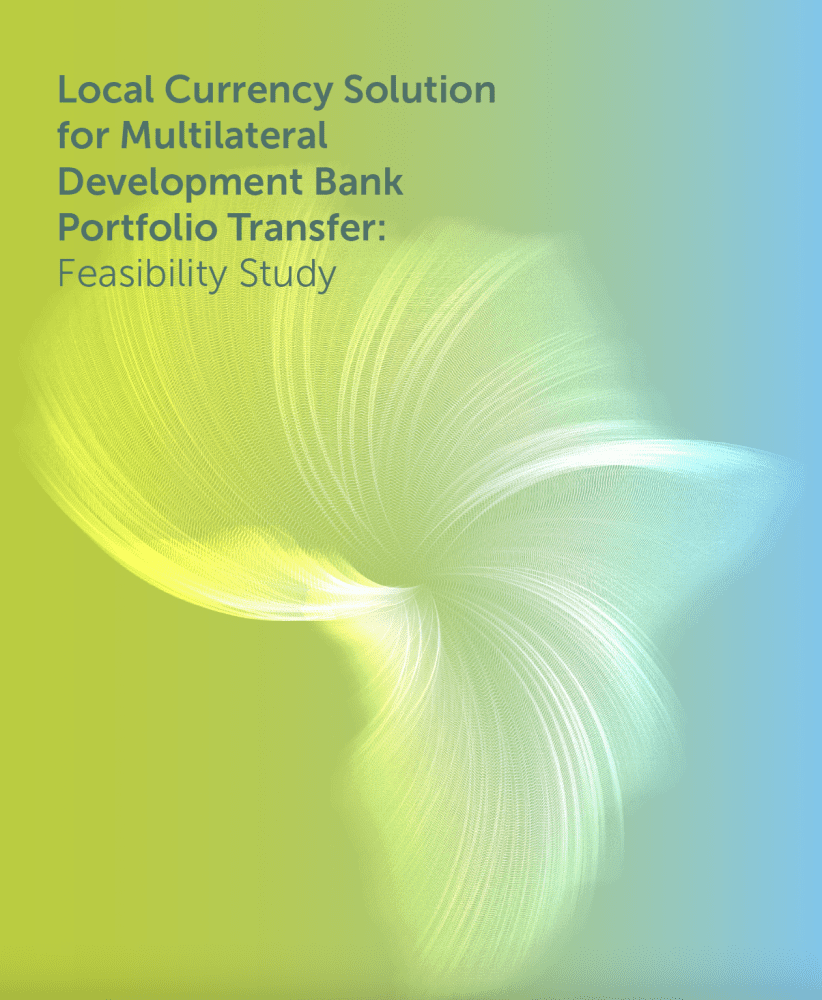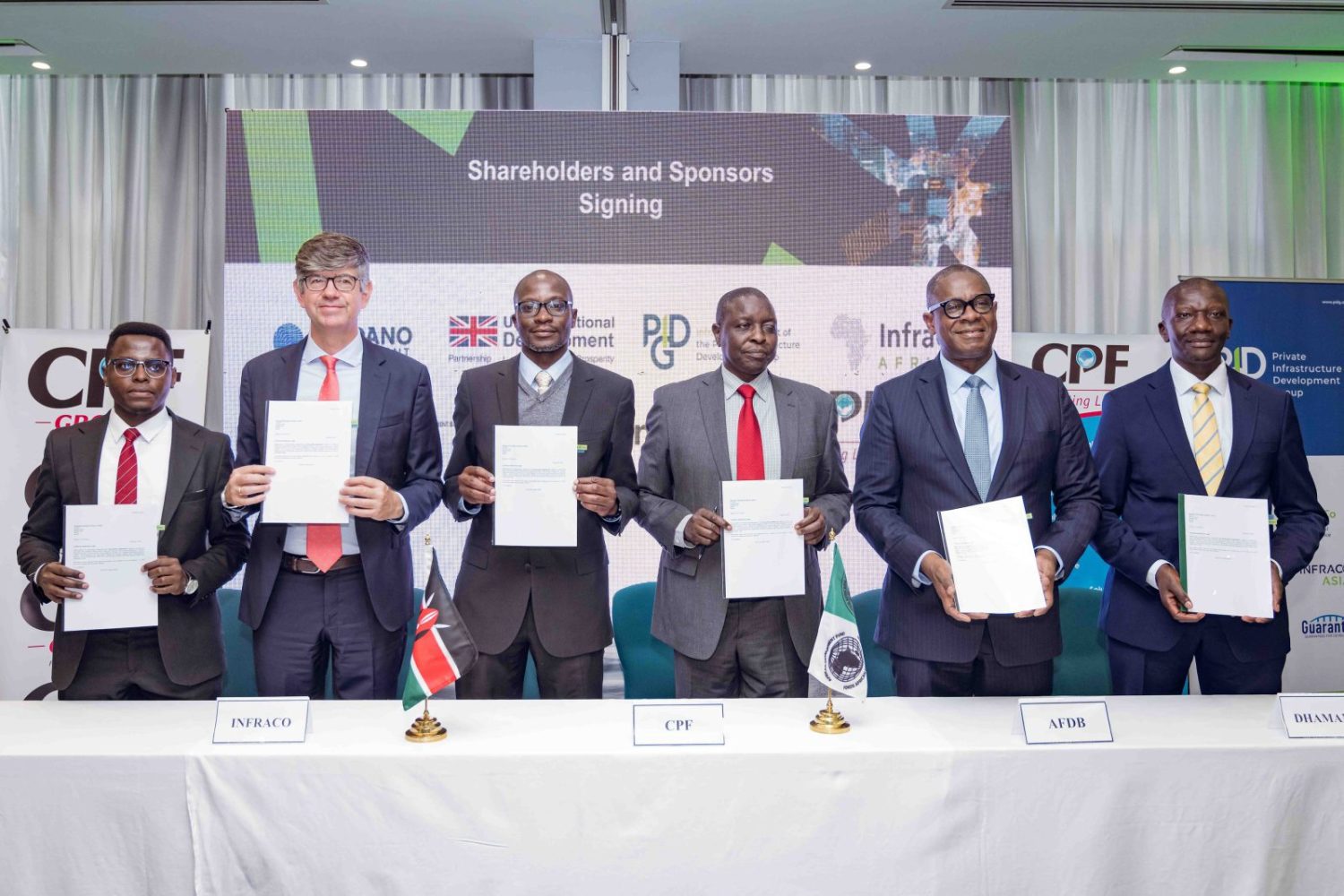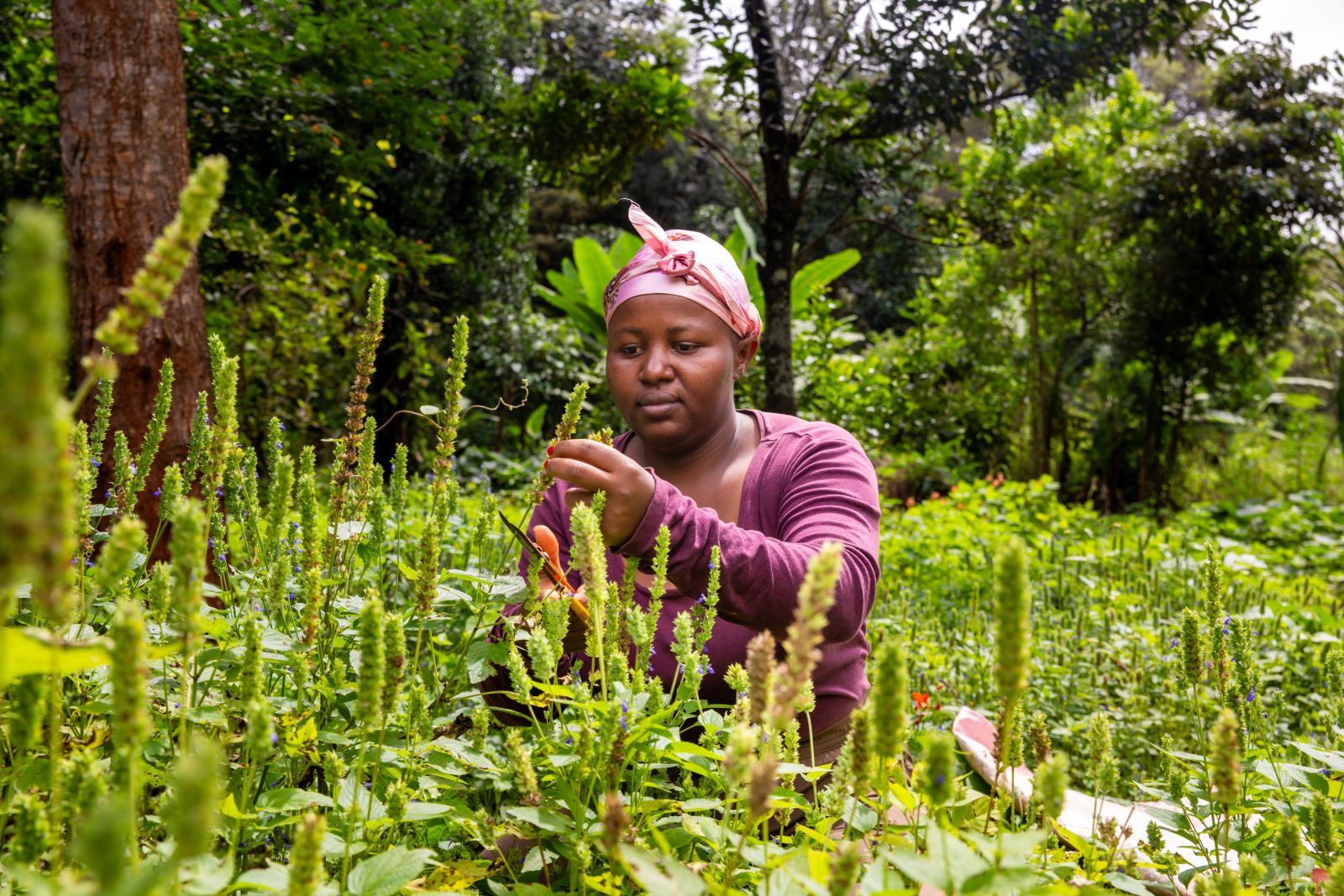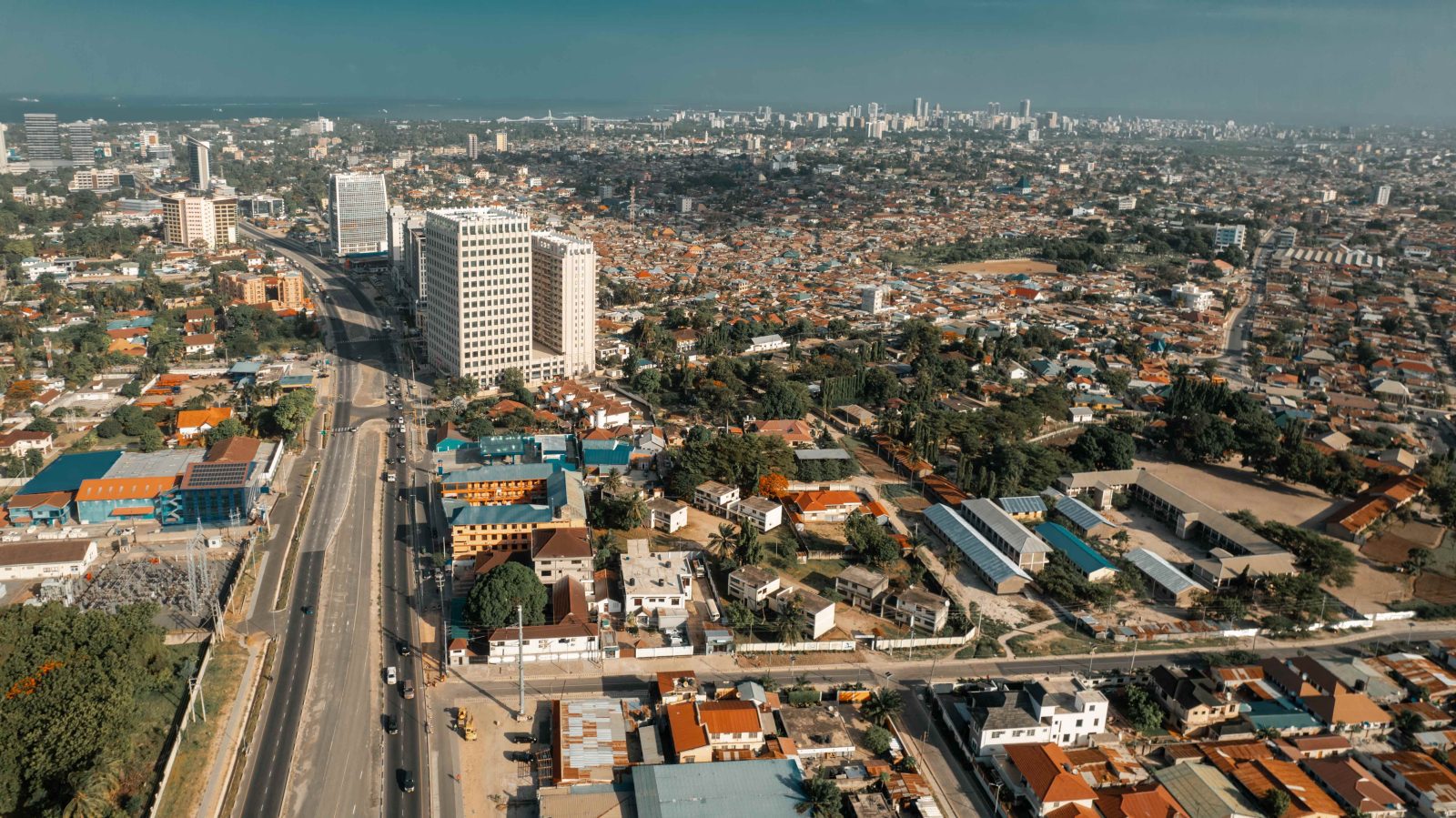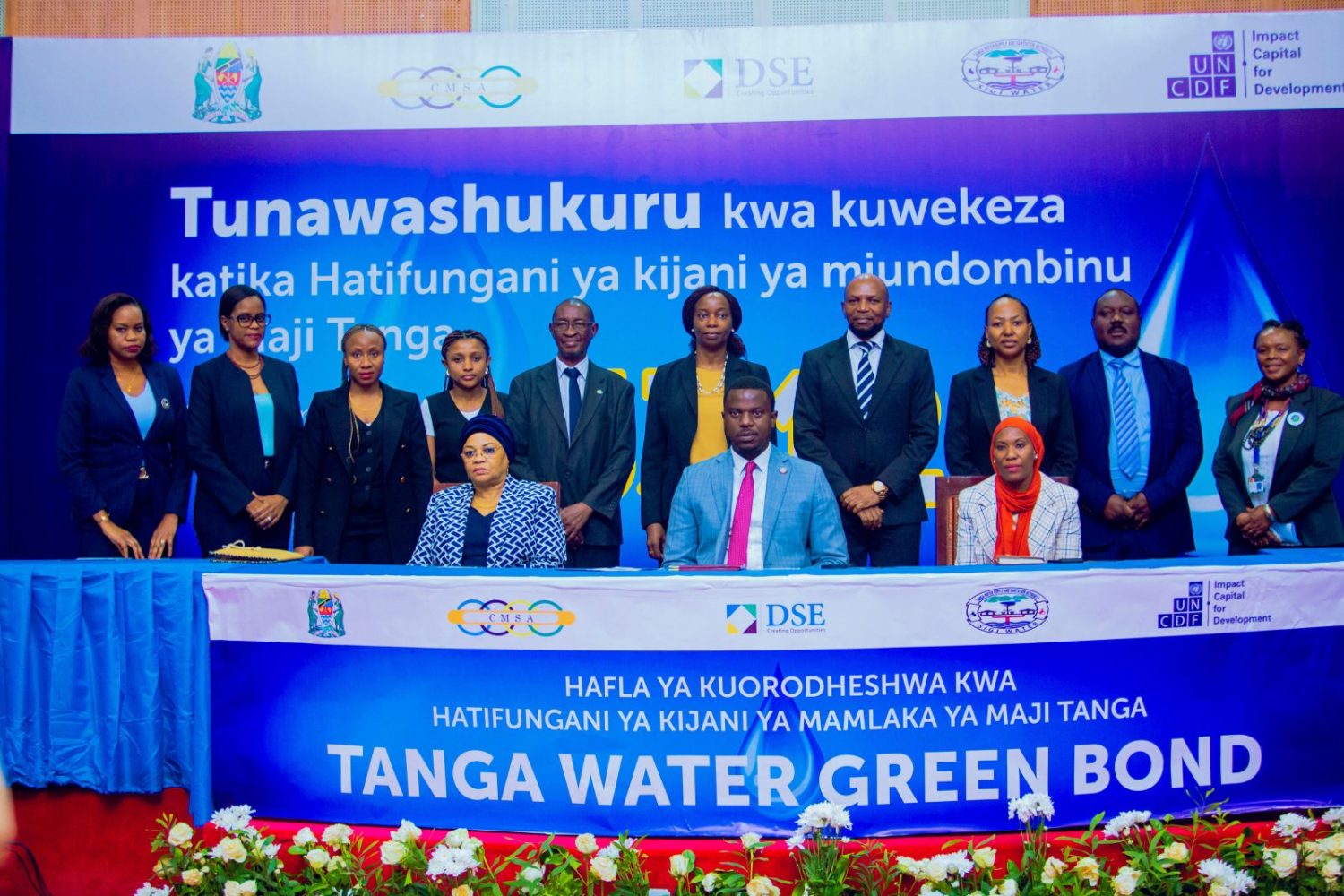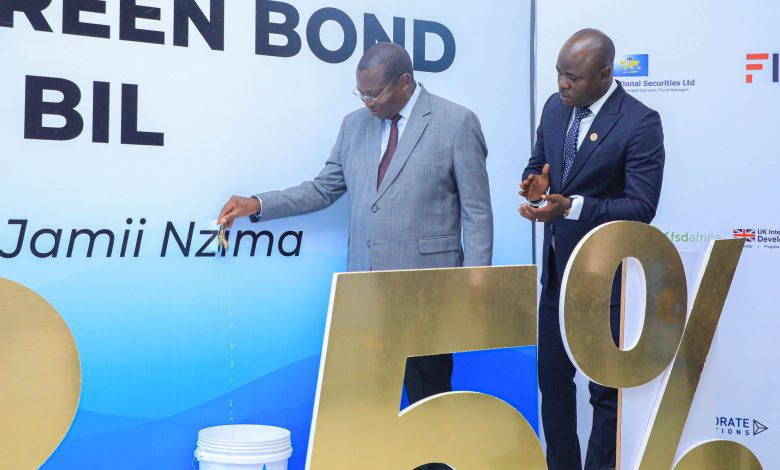Original article by the impact investor
The NMB Jamii Bond, Tanzanian NMB Bank’s inaugural sustainability bond, has cross-listed on the London Stock Exchange to drive institutional capital into the country’s climate finance and development projects.
NMB Bank, a commercial bank in Tanzania, has announced the cross listing of its inaugural sustainability bond, the NMB Jamii Bond, on the London Stock Exchange.
The NMB Jamii Bond launched in both Tanzanian shillings and US dollars on the Dar es Salaam Stock Exchange in December last year, with anchor investments from development finance institutions British International Investment (BII) and the International Finance Corporation (IFC). It aims to increase investment into Tanzanian climate finance and development projects.
The dual-tranche bond raised a total of TZS 400bn (€142m) from both local and international investors in its initial offering, but it is the US dollar tranche that listed on the London stock market.
Ruth Zaipuna, chief executive of NMB, said: “Today’s listing of the Jamii Bond cements NMB Bank’s position as a trailblazer in sustainability within the African capital markets, and we are humbled that our commitment to ESG principles has garnered national and international recognition.
“This extraordinary success highlights the strong confidence Tanzanian and global investors have in NMB Bank’s soundness and commitment to sustainability across operations, business, community, and environment. It reaffirms our creditworthiness and reflects the desire of investors, both local and international, to seize the safe and impactful investment opportunities within Tanzania’s robust investment climate.”
BII, which as anchor investor committed €13.8m equivalent in Tanzanian shilling to the bond, confirmed it had no immediate plans to invest in the dollar tranche through the LSE.
Technical assistance
FSD Africa, a specialist development agency dedicated to mobilising sustainable financing for projects on the African continent, provided technical assistance for NMB Bank’s portfolio review, which was assessed by the not-for-profit organisation Climate Bonds Initiative (CBI), to ensure the bond’s alignment with various international organisations and their requirements and taxonomies.
Responding to questions from Impact Investor, Mark Napier, chief executive of FSD Africa, explained that the portfolio review was critical to identifying existing and pipeline green projects that an issuer could fund.
“A portfolio review assesses the nature of the projects to ensure that they align with the eligibility criteria for green projects. It also enables an issuer to identify the funds required to meet the financing need for this portfolio,” he said.
FSD Africa also offered technical assistance towards securing Second Party Opinion (SPO) for NMB Bank’s sustainable finance framework, a document which explains to investors which eligible projects will be funded, how these projects are selected, how often impact will be reported and how the funds raised will be managed.
“A second party opinion is a required step under the International Capital Market Association (ICMA) sustainability bond principles that assesses the bond framework. Investors rely on this second party opinion, undertaken by a third party, to make an informed decision as to whether to invest in a sustainable bond or not,” Napier explained.
Meeting Africa’s climate goals
Earlier this year, a UN economist predicted Africa would be $2.5trn short of the finance it needs to cope with climate change by 2030 despite, as a continent, contributing the least to greenhouse gas emissions.
Another estimate puts Africa’s climate finance needs at $277bn (€255bn) annually in order to meet its Nationally Determined Contributions, the climate action plans which detail countries’ commitments to achieving the global targets of the Paris Agreement.
The NMB listing is expected to contribute to plugging this gap, but private sector financing still has a long way to go with the 2022 Landscape of Climate Finance in Africa report, commissioned by FSD Africa and others, revealing that it represented only 14% of all of Africa’s climate finance from 2019 to 2020, much lower than in other regions like South Asia (37%), East Asia and Pacific (39%), and Latin America & Caribbean (49%).
Napier said that during the period the report was undertaken, a key finding was that actual risk, perceived risk, and ticket sizes dissuaded private capital players, and that recommendations were made to address this.
“For instance, development partners could target higher leverage ratios through blended financing structures, with a particular focus on an enhanced role for private insurance and partial guarantees. They could also support capacity building both within domestic finance institutions and in developing a pipeline of investable opportunities.”
Information exchange platforms
He added that information exchange platforms and financial alliances such as the Glasgow Financial Alliance for Net Zero (GFANZ), a group of financial institutions formed during the COP26 climate conference in Glasgow, also had a role to play.
“Information exchange platforms could make existing transactions more visible to investors. International networks like GFANZ could support pipeline development and back transaction accelerators. They could also engage actively with domestic institutions to source and bundle viable, well-diligenced transactions,” he added.
The successful issuance of the dual-tranche Jamii Bonds on the Dar es Salaam Stock Exchange last year was said to highlight the growing capacity of local investors to meet the rising demand for climate and sustainability financing.

